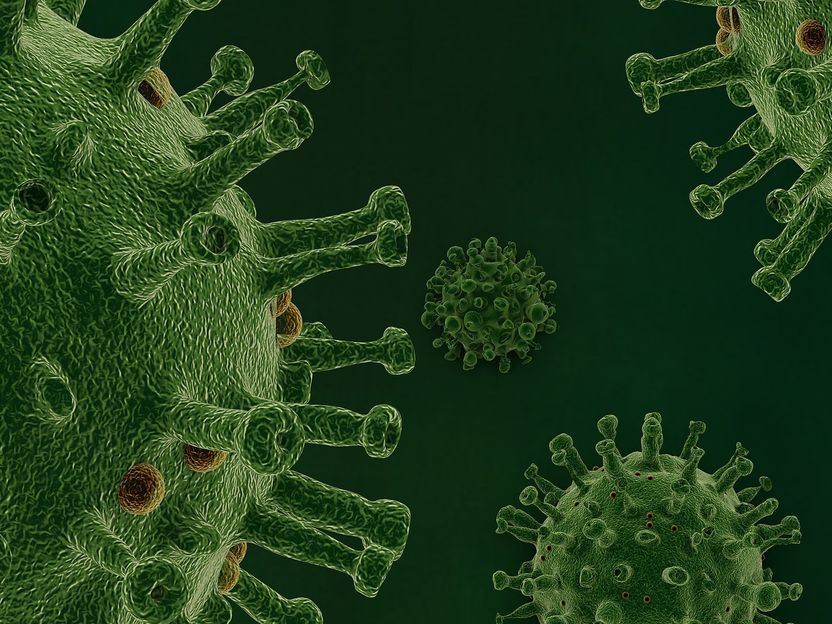Oral drug blocks SARS-CoV-2 transmission
Treatment of SARS-CoV-2 infection with a new antiviral drug, MK-4482/EIDD-2801 or molnupiravir, completely suppresses virus transmission within 24 hours, researchers in the Institute for Biomedical Sciences at Georgia State University have discovered.

Symbolic image
PIRO4D, pixabay.com
The group led by Dr. Richard Plemper, Distinguished University Professor at Georgia State, originally discovered that the drug is potent against influenza viruses.
"This is the first demonstration of an orally available drug to rapidly block SARS-CoV-2 transmission," said Plemper. "MK-4482/EIDD-2801 could be game-changing."
Interrupting widespread community transmission of SARS-CoV-2 until mass vaccination is available is paramount to managing COVID-19 and mitigating the catastrophic consequences of the pandemic.
Because the drug can be taken by mouth, treatment can be started early for a potentially three-fold benefit: inhibit patients' progress to severe disease, shorten the infectious phase to ease the emotional and socioeconomic toll of prolonged patient isolation and rapidly silence local outbreaks.
"We noted early on that MK-4482/EIDD-2801 has broad-spectrum activity against respiratory RNA viruses and that treating infected animals by mouth with the drug lowers the amount of shed viral particles by several orders of magnitude, dramatically reducing transmission," said Plemper. "These properties made MK-4482/EIDD/2801 a powerful candidate for pharmacologic control of COVID-19."
In the study published in Nature Microbiology, Plemper's team repurposed MK-4482/EIDD-2801 against SARS-CoV-2 and used a ferret model to test the effect of the drug on halting virus spread.
"We believe ferrets are a relevant transmission model because they readily spread SARS-CoV-2, but mostly do not develop severe disease, which closely resembles SARS-CoV-2 spread in young adults," said Dr. Robert Cox, a postdoctoral fellow in the Plemper group and a co-lead author of the study.
The researchers infected ferrets with SARS-CoV-2 and initiated treatment with MK-4482/EIDD-2801 when the animals started to shed virus from the nose.
"When we co-housed those infected and then treated source animals with untreated contact ferrets in the same cage, none of the contacts became infected," said Josef Wolf, a doctoral student in the Plemper lab and co-lead author of the study. By comparison, all contacts of source ferrets that had received placebo became infected.
If these ferret-based data translate to humans, COVID-19 patients treated with the drug could become non-infectious within 24 hours after the beginning of treatment.
MK-4482/EIDD-2801 is in advanced phase II/III clinical trials against SARS-CoV-2 infection.























































